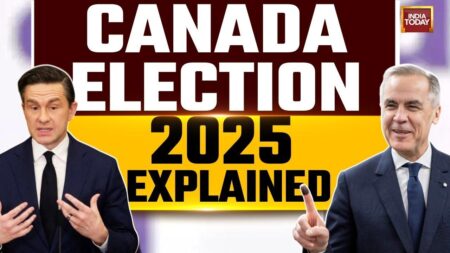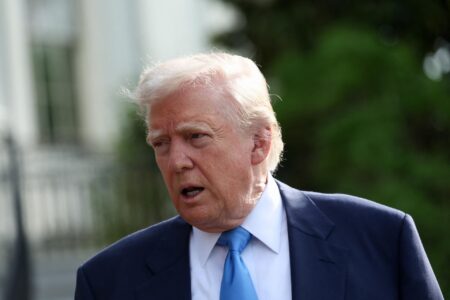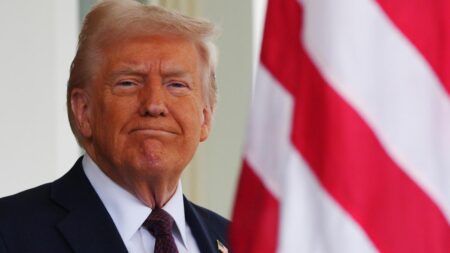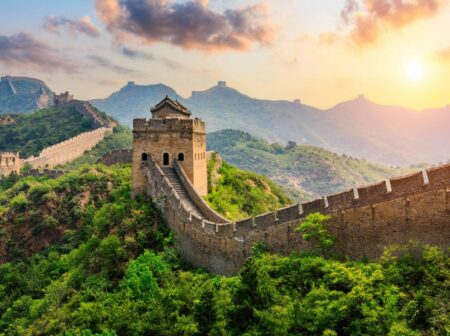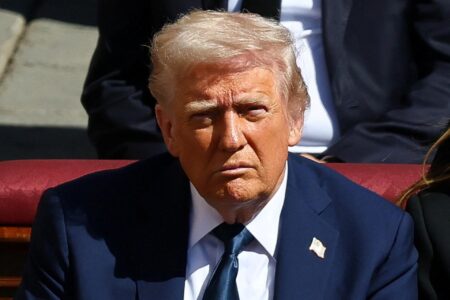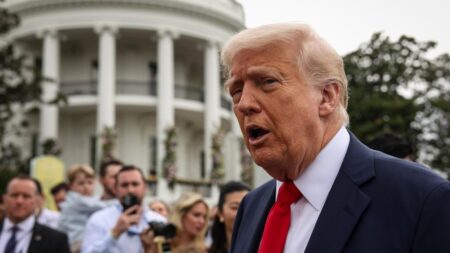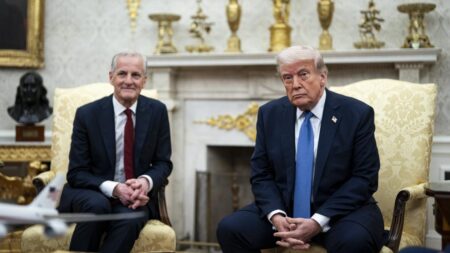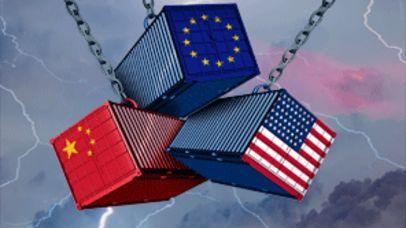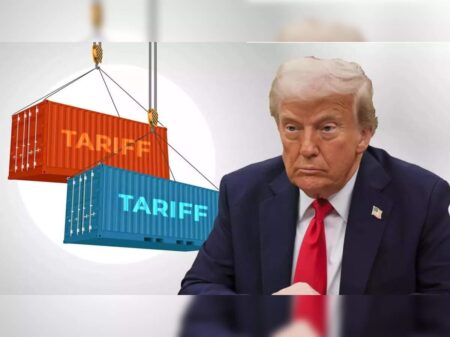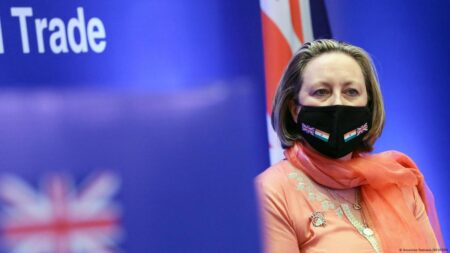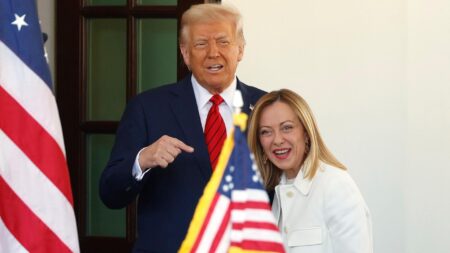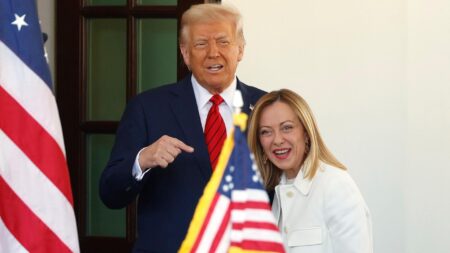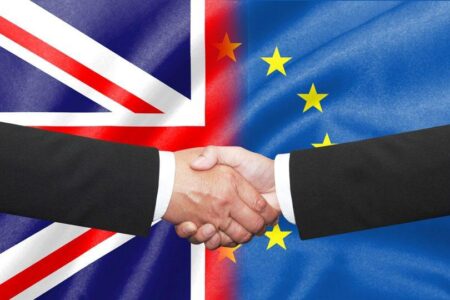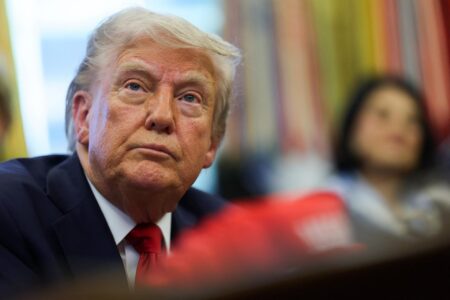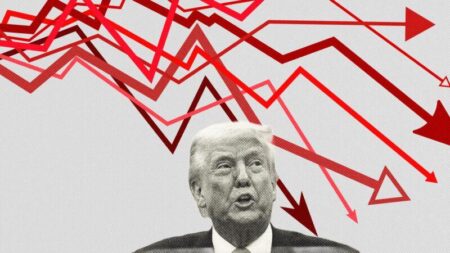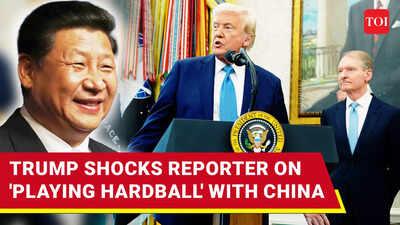Amid a whirlwind of campaign drama fueled by shocking revelations about Donald Trump, the latest projections suggest that Mark Carney’s Liberals are on track for a triumphant win in the 2025 Canada election. As election day approaches, every vote counts more than ever with polls tightening and excitement building!
Browsing: Trump
Trump’s trade war with China has thrust Japan into a challenging dilemma, compelling the nation to carefully balance its relationship with its crucial ally, the U.S., and its main trade partner, China. With tariffs on the rise, Japanese businesses are grappling with uncertainty as they strive to preserve their competitive edge in an increasingly volatile market.
As Canada gears up for its crucial election, the spotlight is on a thrilling showdown between Marc Carney and Pierre Poilievre. Both candidates are ready to confront the pressing challenges brought on by Donald Trump’s impending tariffs. Voters stand at a crossroads, faced with an essential choice about who will steer the nation’s economic future.
In a whirlwind of just 100 days, Trump has made remarkable progress in delivering on his bold promises, tackling everything from tax reform to sweeping deregulation. While critics voice their doubts, supporters are enthusiastic about his assertive approach, arguing that he’s not only transforming the political arena but also breathing new life into the economy
Trump’s tariffs are shaking up global supply chains, causing a ripple effect of rising costs for both manufacturers and consumers. As businesses grapple with delays and the daunting maze of trade barriers, they find themselves in a state of heightened uncertainty. This turmoil not only complicates their operations but also poses significant challenges to our broader economic recovery efforts.
Exciting developments are unfolding as live updates reveal that talks between Ukraine and Russia are making headway, with both nations eager to find a resolution amid the ongoing tensions. Meanwhile, in the U.S., Congress is gearing up to push forward crucial aspects of former President Trump’s agenda, highlighting the persistent political divides that shape the landscape.
In a lively back-and-forth, China took a jab at former President Trump’s tariffs as both countries delve into strategies to cushion the economic blow. With tensions still simmering, officials are actively considering various options to tackle the trade repercussions affecting their industries and consumers
Former President Donald Trump has taken a moment to clarify his intriguing comments about the possibility of Canada joining the United States as the 51st state, insisting, “I’m really not trolling.” His provocative statements have ignited lively discussions and prompted many to ponder the implications for U.S.-Canada relations in today’s charged political climate.
In the wake of Russia’s devastating strike on Kyiv, the city grapples with profound loss and devastation. As the dust settles, a wave of anger towards Trump emerges, with critics pointing fingers at his past policies for giving Russia a sense of empowerment. The relentless conflict casts a long shadow over the region, leaving its people in turmoil.
In a significant meeting at the Vatican on Thursday, former U.S. President Donald Trump and Ukrainian President Volodymyr Zelenskyy came together for what they described as “productive” discussions. The two leaders zeroed in on enhancing their bilateral relations, all while navigating the complex landscape of ongoing tensions in Ukraine.
Former President Donald Trump is calling on Ukraine to explore a peace plan that appears to heavily favor Russia, sparking alarm among U.S. officials and allies alike. Detractors warn that this proposal not only jeopardizes Ukrainian sovereignty but also strengthens Putin’s ambitions.
President Trump’s trade war with Canada has cast a shadow of regret, as tariffs unravel decades of strong economic bonds. The ripple effects are evident across the spectrum, from farmers to manufacturers, underscoring the intricate web of challenges and repercussions stemming from this divisive policy.
A Republican lawmaker has sounded the alarm for former President Donald Trump over his recent remarks about making concessions to Russia. These comments have sparked unease within the party, shining a spotlight on the persistent tensions surrounding foreign policy and national security.
As pivotal trade discussions with the U.S. loom, UK Treasury chief James Reeves has taken a moment to address the concerns voiced by former President Trump about the state of the global economy. Reeves underscored that working together is essential to tackle our shared economic hurdles.
Recent data reveals a fascinating divide among Americans when it comes to Trump’s views on Ukraine and Russia. On one side, many applaud his focus on prioritizing American interests, seeing it as a bold move. On the other hand, there are growing concerns about his seemingly soft approach towards Moscow, especially in light of the escalating tensions. This split in opinion highlights the complexity of foreign policy in today’s world.
In a captivating exploration, The New York Times uncovers the relentless devotion needed to win over former President Donald Trump. Essential tactics involve constant admiration and visible loyalty, which are reshaping the landscape of contemporary Republican politics
The UK is actively exploring the possibility of slashing tariffs in a bid to clinch a post-Brexit trade deal with the Trump administration. This strategic maneuver highlights London’s determination to build fresh economic connections as global trade dynamics continue to evolve.
In a recent statement, former President Donald Trump voiced his frustration over the devastating Russian strikes on Kyiv, urging for a stronger international response. His comments arrive as worries mount over the intensifying violence and deepening humanitarian crises in Ukraine
Trump’s trade war and looming threats of annexation have dramatically reshaped Canada’s election landscape, casting a shadow over pressing domestic issues. As candidates navigate this turbulent terrain, they find themselves wrestling with the far-reaching implications of foreign policy. With economic uncertainty on the rise, voter anxieties are intensifying as the polls draw near.
In light of President Trump’s attempts to smooth over trade tensions, a wave of skepticism has swept across China. Analysts and officials alike are voicing their doubts, casting a critical eye on the sincerity of these gestures. With tariffs still in place and economic frictions simmering, many are left wondering if this olive branch is genuine or just another political maneuver.

